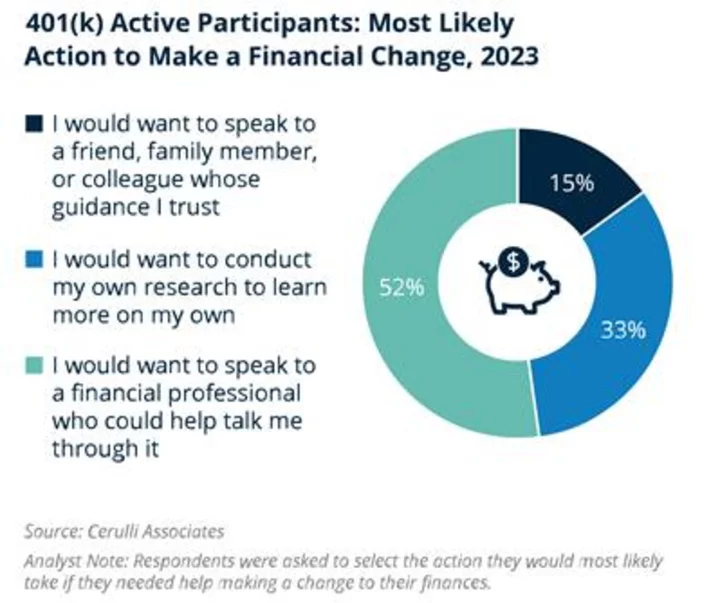In less than three months, the federal government is set to announce the initial 10 drugs subject to first-ever price negotiations in Medicare.
Pharmaceutical companies and their supporters want to stop that from happening.
Last week, Merck and the US Chamber of Commerce filed separate lawsuits against the government, arguing that negotiating drug prices in Medicare is unconstitutional in a variety of ways.
The Biden administration is pushing back against those claims, saying that the Constitution does not prohibit Medicare from negotiating drug prices. And legal experts think it will be tough for the challengers to win their cases.
Here's what's going on:
Medicare's historic new power
The Inflation Reduction Act, which congressional Democrats passed last summer, fulfilled the party's longstanding goal of allowing Medicare to negotiate the prices of certain expensive drugs bought at pharmacies and administered at doctors' offices.
Though the provision was not as comprehensive as some Democrats would have liked, it opens the door to letting Medicare use its heft to lower the cost of medications for the federal government and senior citizens -- though it's uncertain how many beneficiaries will see savings in any given year.
The Health and Human Services secretary can negotiate the prices of 10 drugs for 2026, and another 15 drugs for 2027 and again for 2028. The number rises to 20 drugs a year for 2029 and beyond. Only medications that have been on the market for several years without competition are eligible.
In the first two years of negotiations, the Centers for Medicare and Medicaid Services will select only Part D drugs that are purchased at pharmacies. It will add Part B drugs, which are administered by doctors, to the mix for 2028.
The agency outlined in March how the negotiation process will proceed and launched a 30-day comment period on key implementation elements. It will publish the first 10 Part D drugs selected for negotiation on September 1 and give their manufacturers a month to decide whether to sign agreements to participate.
The agency will send an initial maximum fair price offer to manufacturers on February 1, 2024. Drug companies have 30 days to accept the offer or propose a counteroffer. Up to three in-person meetings may be held during the negotiation period, which ends June 30, 2024.
CMS will make a final written offer by July 15, 2024, which drugmakers must either accept or reject by the end of the month.
CMS will publish the negotiated maximum fair prices on September 1, 2024, and they will become effective at the start of 2026. The agency intends to determine a single price for a 30-day equivalent supply of the selected drug.
The initial set of drugs will be chosen from the top 50 Part D drugs that are eligible for negotiation that have the highest total expenditures in Medicare.
Among the factors CMS will consider when developing its initial offer are the clinical benefits of the selected drugs -- including whether it fills an unmet medical need in a specific population -- and the price of therapeutic alternatives, such as other drugs in the same class.
The agency will look at how the drug compares with the alternatives in terms of health outcomes, side effects and other metrics. It will also consider research and development costs, patent protection, federal support and production and distribution costs, among other factors.
If drugmakers don't comply with the process, they will have to pay an excise tax of up to 95% of the medications' US sales or pull all their drugs from the Medicare and Medicaid markets.
The provision is expected to reduce spending by nearly $102 billion over a decade, according to the Congressional Budget Office.
The lawsuits
Merck and the US Chamber of Commerce, which has drug company executives on its board and manufacturers as members, argue that allowing Medicare to negotiate prices violates multiple protections afforded by the Constitution and threatens to harm the development of new medications.
In its complaint, filed in US District Court for the District of Columbia in early June, Merck said the program is a "sham" and "involves neither genuine negotiations nor real agreements."
"Rather, once HHS unilaterally selects a drug for inclusion in the program, its manufacturer is compelled to sign an 'agreement' promising to sell the drug to Medicare beneficiaries at whatever 'fair' price the agency dictates, which must represent at least a 25% to 60% discount," the complaint says, calling it "tantamount to extortion."
Merck argues that the provision violates the Fifth Amendment's "takings" clause because it allows Medicare to obtain manufacturers' patented drugs without paying fair market value under the threat of serious penalties. The manufacturer contends that patented pharmaceuticals are private property under the clause.
Plus, the negotiations process violates the First Amendment because it coerces manufacturers into saying that they agree to the price that the government has dictated and that it's fair, the complaint says.
Merck expects its diabetes drug Januvia to be among the drugs named in September and its blockbuster cancer treatment Keytruda and diabetes drug Janumet to be subject to negotiation in the future. The medications bring in billions of dollars in sales for the pharmaceutical giant.
Meanwhile, the US Chamber of Commerce filed a lawsuit last Friday in the US District Court for the Southern District of Ohio, claiming that the negotiations provision violates constitutional protections for free enterprise. It too argues that the provision violates the Fifth and First amendments, but also the Eighth Amendment by levying an excessive fine if drugmakers refuse to negotiate and continue selling their products to the Medicare market.
"Instead, the IRA is custom-built to eliminate political and legal accountability for HHS decision-making and to maximize the agency's unfettered and unchecked power," the complaint reads.
The chamber notes in its lawsuit that one of its members, AbbVie, manufactures Imbruvica, which is used to treat certain blood cancers. It is expected to be on the initial list of drugs subject to negotiation, according to the complaint.
Tough road in court
The Biden administration said it is confident it will succeed in court.
"There is nothing in the Constitution that prevents Medicare from negotiating lower drug prices," Christen Linke Young, deputy assistant to the president for health and veteran affairs, said on a call with reporters last week.
Legal experts also believe the challengers' arguments are pretty thin.
The "takings" clause says the government cannot take private property for public use without just compensation.
"If you look at the history and the text of the Constitution and other precedents, it's an extraordinary leap to say that patents are private property," said Robin Feldman, law professor at the University of California College of the Law, San Francisco.
Merck "will have a heavy lift to convince the courts that these words apply," she said.
Also, drugmakers don't have to participate in the negotiations so the federal government is not forcing them to turn over their patented medications, said S. Sean Tu, a law professor at West Virginia University. Medicare is a market created by the federal government, and it doesn't have to give drugmakers access, he continued.
As for Merck's First Amendment claim, Feldman said that she would expect the contract between the government and the drugmakers to list the price and the terms and not characterize the agreement as "fair."
Tu also questioned whether the US Chamber of Commerce has the standing to bring a lawsuit since it is not a party that could be harmed, even if some of its members could be.
Both professors feel that some other claims made by Merck and the chamber could prove more challenging for the government, including those relating to the hefty fines and the time period drugmakers have to withdraw from Medicare before being subject to the penalties.
It's likely that other drug companies will file lawsuits as well, Tu said, noting the manufacturers' big profits.
"This is going to get litigated a lot," he said. "If I'm making that much money, I'm going to try to protect it."









